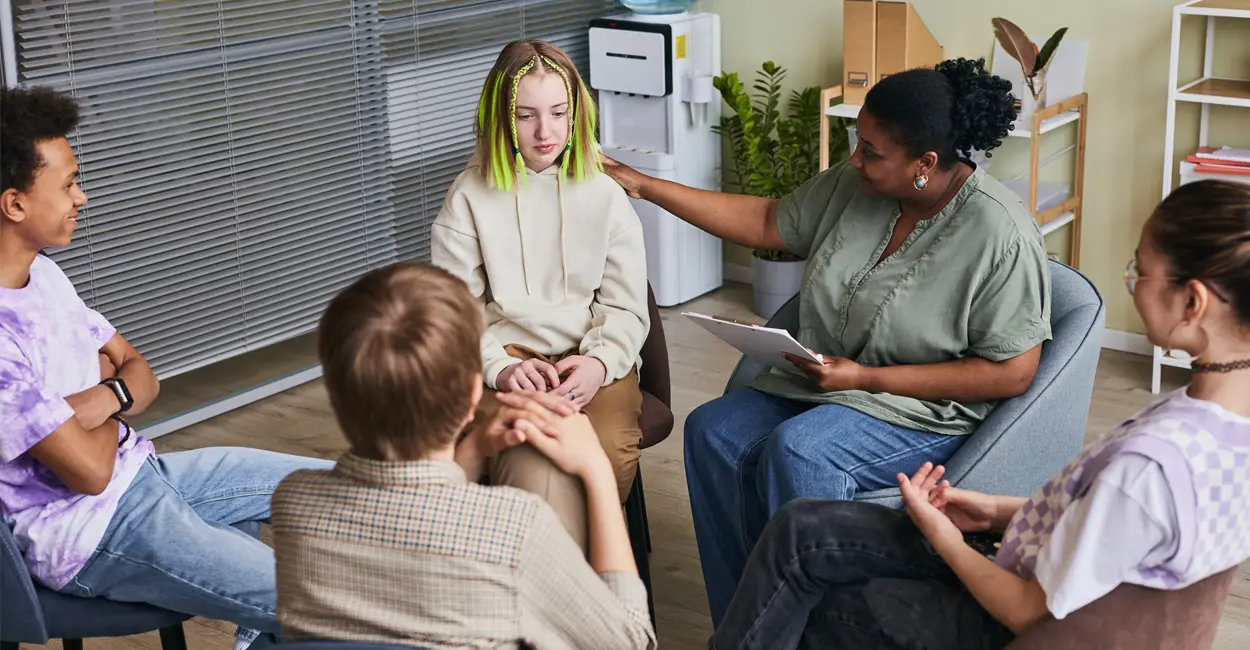24/7 Helpline:
(866) 899-221924/7 Helpline:
(866) 899-2219
Learn more about Residential Rehab centers in San Joaquin County

Other Insurance Options

UMR

EmblemHealth

Sutter

Excellus

UnitedHealth Group

PHCS Network

Oxford

Self-pay options

WellPoint

ComPsych
Beacon

Ambetter

AllWell

Premera

Highmark

Medical Mutual of Ohio

Ceridian

United Health Care

Kaiser Permanente

CareFirst

Native Directions – Three Rivers Indian Lodge
Native Directions — Three Rivers Indian Lodge is a drug and alcohol rehab located in Manteca, Califo...

Valley Community Counseling Services – VCCS
Valley Community Counseling Services (VCCS) provides behavioral health services for individuals, fam...

Valley Community Counseling Services – VCCS
Valley Community Counseling Services (VCCS) provides behavioral health services for individuals, fam...

Aegis Treatment Centers – Healthy Connections
Aegis Treatment Centers – Healthy Connections is a drug and alcohol rehab located in Lodi, Californi...

Valley Community Counseling Services – VCCS
Valley Community Counseling Services (VCCS) provides behavioral health services for individuals, fam...

Valley Sober Living
Valley Sober Living is a Sober Living facility for those individuals that are in the early stages of...

Ken Seeley Communities
Ken Seeley Communities is a drug and alcohol rehab in Acampo, California. They provide residential t...

Life Work Outreach Services
Life Work Outreach Services is a private rehab located in Woodbridge, Virginia. Life Work Outreach S...

Prince William County Behavioral Health
Prince William County Behavioral Health is a public rehab located in Woodbridge, Virginia. Prince Wi...

SaVida Health
SaVida Health, formerly Experience Wellness Centers, is a private healthcare practice located in Woo...














































































AA – Alcoholics Anonymous – South Sacramento Street
AA – Alcoholics Anonymous – South Sacramento Street is a non-profit rehab located in Lodi, Californi...

Fresh Beginning
Fresh Beginning is a private rehab located in Tracy, California. Fresh Beginning specializes in the ...

Bright House
Bright House is a private rehab located in French Camp, California. Bright House specializes in the ...

Breaking the Chains Counseling
Breaking the Chains Counseling is a private rehab located in Lodi, California. Breaking the Chains C...

AA – Alcoholics Anonymous
AA – Alcoholics Anonymous is a non-profit rehab located in Manteca, California. AA – Alcoholics Anon...

the PASS method
the PASS method is a private rehab located in Manteca, California. the PASS method specializes in th...

AA – Alcoholics Anonymous – East Pine
AA – Alcoholics Anonymous – East Pine is a non-profit rehab located in Lodi, California. AA – Alcoho...

RAMAS Counseling Center
RAMAS Counseling Center is a private rehab located in Woodbridge, New Jersey. RAMAS Counseling Cente...

L and S Recovery Institute
L and S Recovery Institute is a private rehab located in Woodbridge, New Jersey. L and S Recovery In...

Washington Behavioral Health
Washington Behavioral Health is a private rehab located in Woodbridge, Virginia. Washington Behavior...

Woodbridge Therapy Group
Woodbridge Therapy Group is a private rehab located in Woodbridge, Virginia. Woodbridge Therapy Grou...

Addiction Care and Treatment
Addiction Care and Treatment Center is located in Woodbridge, Virginia. Addiction Care and Treatment...






























































































































































